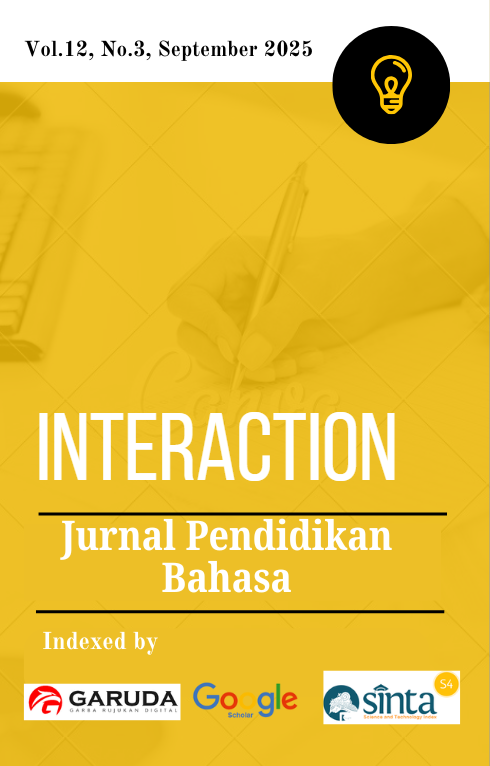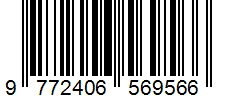Digital Challenges for the Teaching Profession: An Analysis of English Education Students' Perceptions of AI's Potential as a Competitor to Teachers
DOI:
https://doi.org/10.36232/interactionjournal.v12i3.4070Keywords:
Artificial Intelligence, AI as Teachers’ Competitor, Digital ChallengesAbstract
The rapid advancement of artificial intelligence (AI) has created new opportunities and challenges in education, especially for future English teachers. While AI has been widely applied in language learning through adaptive platforms, chatbots, and mobile applications, concerns remain about its potential to compete with or even replace teachers. This study seeks to analyze the perceptions of English education students regarding AI’s role in English language learning and its implications for the teaching profession. The research employed a qualitative approach using semi-structured interviews with senior students of the English Education Department at Klabat University, who are preparing to graduate and enter the teaching field. Data were analyzed using content analysis to identify key themes. The results indicate that students generally view AI as a supportive tool that makes learning more accessible, flexible, and engaging. They recognize AI's strengths in providing practice opportunities, quick feedback, and personalized learning experiences. However, participants unanimously stressed that AI cannot replace teachers due to its lack of human qualities such as empathy, motivation, and emotional understanding. They emphasized the importance of teachers in guiding, inspiring, and addressing students' personal and affective needs, which remain beyond the capacity of AI to fulfill. The findings also reveal two major challenges: the need for teachers to continually adapt to technological changes and the risk of students becoming overly dependent on AI. This study contributes to the growing discussion on digital challenges in teacher education, offering insights into how prospective teachers envision striking a balance between AI and human educators in the digital era.








